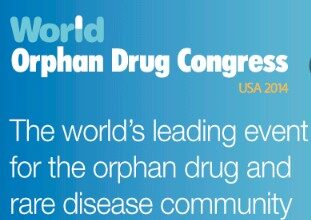 Physicians are trained to arrive at a medical diagnosis by starting with the potential causes that are most common.
Physicians are trained to arrive at a medical diagnosis by starting with the potential causes that are most common.
 Physicians are trained to arrive at a medical diagnosis by starting with the potential causes that are most common. The adage is “When you hear hoofbeats, think horses—not zebras.” This is logical and effective if a patient has a common condition, but the diagnosis of an orphan condition requires a different approach. The National Organization for Rare Disorders estimates that it takes an average of 9 years for a rare disease patient to get an accurate diagnosis.
Physicians are trained to arrive at a medical diagnosis by starting with the potential causes that are most common. The adage is “When you hear hoofbeats, think horses—not zebras.” This is logical and effective if a patient has a common condition, but the diagnosis of an orphan condition requires a different approach. The National Organization for Rare Disorders estimates that it takes an average of 9 years for a rare disease patient to get an accurate diagnosis.
This means that many patients, caregivers and physicians are online searching for answers, using search engines and forums. But, if you’ve ever tried searching Google or Bing for rare disease symptoms, you know that this is not effective. Enter Radu Dragusin from the Technical University of Denmark and a few colleagues who have launched a new search engine dedicated to the diagnosis of rare diseases called FindZebra.com.
Their study published in the International Journal of Medical Informatics shows FindZebra outperforms Google. The research explains that the algorithms of popular search engines (such as Google) favor websites that have a number of other websites linking back to them. These links validate that the information has been found useful to others. But by its very nature, information on rare disorders is typically scarce and has fewer backlinks.
How does FindZebra work?
The study notes: “It uses a specially curated dataset of rare disease information, which is crawled from freely available online authoritative resources. This means that FindZebra searches for rare disease information from a repository of ‘clean,’ specialized resources, unlike web search engines that search the whole web and are hence likely to return spurious, commercial and less relevant results.”
How does FindZebra compare to Google?
This blog post describes the success: “Evaluating on a set of 56 queries…Zebra easily beats Google. Zebra finds the correct diagnosis in top 20 results in 68% of the cases, while Google succeeds in 32% of them.” I did my own comparison and searched “purple urine,” which is a common symptom of a group of orphan conditions called Porphyrias. On Google, Porphyria doesn’t appear on the first three pages of the results, but for FindZebra it’s the second choice, with Acute Intermittent Porphyria showing as the seventh and eighth results.
On FindZebra is a warning that it is a research project and it is to be used only by medical professionals. It will be interesting to see how FindZebra evolves and if it gains wide adoption among healthcare professionals and patients. I know I’ll be using it. Will you?
Image courtesy of Martin Pettitt on Flickr (CC BY).









